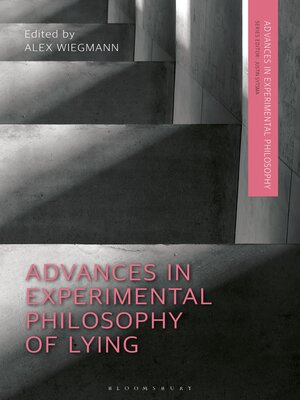Advances in Experimental Philosophy of Lying
ebook ∣ Advances in Experimental Philosophy
By Alex Wiegmann

Sign up to save your library
With an OverDrive account, you can save your favorite libraries for at-a-glance information about availability. Find out more about OverDrive accounts.
Find this title in Libby, the library reading app by OverDrive.



Search for a digital library with this title
Title found at these libraries:
| Library Name | Distance |
|---|---|
| Loading... |
Lying is a familiar and morally important phenomenon. No matter if it is in election battles, in personal relationships or in the form of fake news – lying affects us almost every day. Showcasing cutting-edge research on the concept of lying, including work on blatant falsehoods, children's concept of lying and deception in the courtroom, this interdisciplinary collection examines what it means to lie and how lying should be defined.
Bringing together leading and rising scholars from philosophy, psychology, linguistics and anthropology, chapters present novel empirical findings using a variety of methods including experiments, armchair methods, corpus studies and fMRI. Advancing our understanding of the concept of lying, it also focuses on related concepts such as "fake news" and "bullshit", as well as fundamental questions such as whether lying is morally worse than misleading. It is an essential resource for any student or scholar looking to stay ahead of the latest developments in the philosophy of lying and related fields in philosophy of language, ethics and moral philosophy, philosophy of law, moral psychology, linguistics and cognitive science.
Bringing together leading and rising scholars from philosophy, psychology, linguistics and anthropology, chapters present novel empirical findings using a variety of methods including experiments, armchair methods, corpus studies and fMRI. Advancing our understanding of the concept of lying, it also focuses on related concepts such as "fake news" and "bullshit", as well as fundamental questions such as whether lying is morally worse than misleading. It is an essential resource for any student or scholar looking to stay ahead of the latest developments in the philosophy of lying and related fields in philosophy of language, ethics and moral philosophy, philosophy of law, moral psychology, linguistics and cognitive science.







